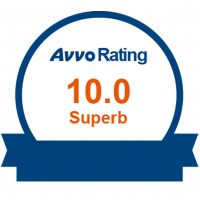







Divorce is Hard.
If you have ever talked to your family or friends about their divorce or child custody case, it doesn’t take long for you to get an idea about just how tough the litigation process can be on individuals and on families. However, you do have options and a say in your divorce. You don’t have to be combative, or litigious to come to a resolution that works best for you and your family.
You can resolve your divorce peacefully and amicably with a Collaborative Family Law approach.
Make it Easier.
Collaborative Family Law or the “Collaborative Process” is the New Future of family law. As collaboratively trained attorneys, the lawyers at TK Law want to help you resolve your issues without the need for long and drawn-out litigation.
We know how hard it is to get good information about the Collaborative Process and Collaborative Family Law. That is why TK Law has created this webpage. We wanted to create a resource for our clients and for those throughout the State of Florida to gather information and learn more about how the Collaborative Process.
When you call TK Law and set up an initial consultation, tell our staff that you are interest in resolving your case through the Collaborative Process. Feel free to use this website as research as you learn about the differences between litigation and the Collaborative Process.
Learn More
What is Collaborative Family Law?
>> A better approach to handle your family's legal issues.
Collaborative Family Law or the “Collaborative Process” is the New Future of family law. If you have ever talked to your family or friends about their divorce or child custody case, it doesn’t take long for you to get an idea about just how tough the litigation process can be on individuals and on families.
Is a Collaborative Divorce right for me?
>> The ideal approach to divorce for high networth individuals
A collaborative divorce provides the opportunity for a confidential, amicable and fair divorce specifically tailored to high asset individuals. Instead of being combative and in the public’s eye- you and your spouse will both be aided by mental health professionals, a financial neutral and other experts as needed per your situation. Each party will be accompanied by a lawyer to best represent their interest, but instead of going directly to court, you get to work through all matters in a neutral setting of your choosing.
>> If you’re looking for a combative cut-throat divorce, this is not the right approach for you.
>> If you’re looking for a peaceful separation with an emphasis on harmony, confidentiality and professional guidance, then this approach may work for you.
The Collaborative Divorce Process Explained
>> A multi-party confidential process to settle your affairs with professional support
The Parties Involved in a Collaborative Divorce:
- A neutral mental health professional who may be referred to as a “coach” or “collaborative facilitator.”
- A financial neutral – I.e. a CPA
- A lawyer representing each spouse.
Situational Parties Involved:
- Business evaluators
- Child specialists/Family Therapist
- Realtors/Property Appraisers/Mortgage Brokers
- Vocational Experts
- Financial Advisors

First Steps to Your New Future
01
Initial Consultation
Speak with one of our support staff members to get started.
02
Meet Your Lawyer
Meet with your lawyer and decide the next best steps for you.

Avoid a Public, Intrusive & Combative Divorce
As family law practitioners, the attorneys at TK Law have seen the collateral damage of a contentious divorce case have longed for standards of practice that focus on rebuilding a healthier family foundation with a less adversarial approach. Unfortunately, the traditional family court system is reactive and is slow. To add to the inherent deficiencies of the traditional family court system, judges are limited in time and in information and are not always able to do what is best for the family.
Let Your Family Decide, Not a Judge.
- 92% of Collaborative matters ended in a full resolution of all issues, while an additional 8% of participants concluded with a partial resolution or other outcome. Even when a full agreement was not reached, substantial progress was often made on parenting issues and understanding finances.
- 31% of Collaborative matters were concluded or resolved in less than 3 months, an additional 33% were concluded or resolved in 3-6 months, and an additional 31% were concluded or resolved in 6-12 months. This means that 95% of Collaborative matters are concluded or resolved within 1 year. Contrast that with litigation, where even the most efficient Courts expect 12-18 months before a trial and there may be appeals and additional litigation after the trial.

Pros of a Collaborative Divorce
- Less time consuming than litigation;
- While not cheap, it is generally less costly than trial and litigation;
- Less stress from uncertainty. The Collaborative Process is about options (and option building) and finding resources. Contrast that to litigation where you can expect parties to take positions and bargain for an advantage (both of which encourage litigation);
- Encourages transparency and allows you to retain control over outcome in a more private arena;
- Supported by professionals: emotional (mental health), financial and legal;
- Creates positive resolution for entire family that reduces future conflicts.
An important aspect of the Collaborative Process is the mandatory attorney withdrawal agreement, which states that if the parties and lawyers fail to reach a settlement, the lawyers must withdraw. This provision tends to increase the client’s interest in settling and keeps the lawyer’s role consistent with the fundamentals and goals of the entire process. In addition, it keeps everyone motivated to continue to compromise and resolve issues
Award-Winning Family Lawyers





Decades of Experience + A Client-Centered Approach
Contact Us
E-mail us below or give us a call at:
407-965-1144

About Our Logo
Why the Lilac Breasted Roller: The lilac-breasted roller, often referred to as the “peace bird,” mirrors the essence of tranquility and harmony. It was also known as the “bird of the sun” and was instrumental in keeping ancient societies in peace. This vibrant and colorful bird becomes a symbol of hope and resolution amid challenging times.
The roller bird family is named for their unique ability to perform aerial acrobatics in flight. Much like the acrobatic prowess of roller birds, successful couples involved in the collaborative family law process must demonstrate agility and adaptability to navigate the complexities that may arise. While judges and courtrooms are often rule based and inflexible, during the collaborative process, parties are encouraged to be flexible and open to adjustments, recognizing that goals and needs can shift.
In the African sky, lilac-breasted rollers are true rainbows. We hope that our Firm and logo can be a rainbow leading you to a path of peaceful resolution.
“Peace cannot be kept by force. It can only be achieved by understanding.”
– Albert Einstein
Contact
Service Areas
Orange & Seminole County, Florida.
Disclaimer
The information found here is for general information purposes only. Nothing on this site should be taken as legal advice for any situation or individual case. This information is not intended to create, and receipt or viewing does not constitute, an attorney-client relationship.
